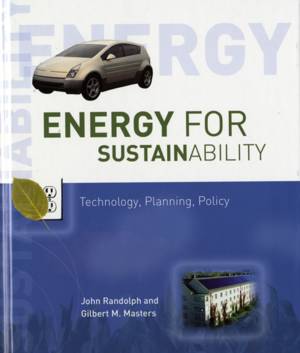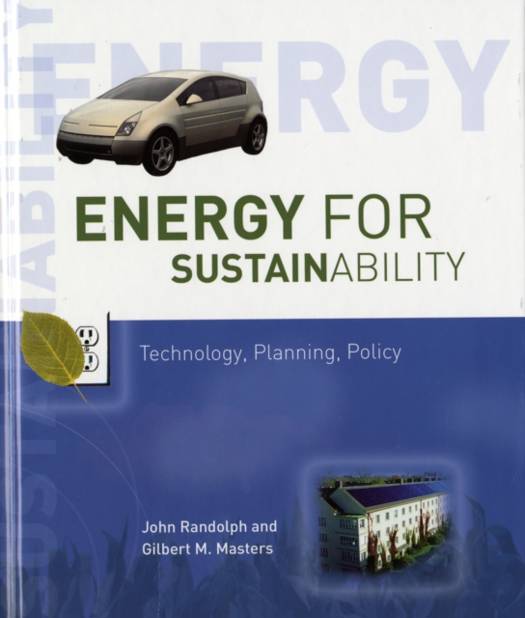
- Retrait gratuit dans votre magasin Club
- 7.000.000 titres dans notre catalogue
- Payer en toute sécurité
- Toujours un magasin près de chez vous
- Retrait gratuit dans votre magasin Club
- 7.000.0000 titres dans notre catalogue
- Payer en toute sécurité
- Toujours un magasin près de chez vous
Energy for Sustainability
Technology, Planning, Policy
John Randolph, Gilbert M. Masters
Livre relié
113,45 €
+ 226 points
Description
An undergraduate textbook on renewable energy and energy efficiency with a focus on the community scale. A treatment of energy sources and uses, it examines the full range of issues - from generating technologies to land use planning - in making the transition to sustainable energy.
Spécifications
Parties prenantes
- Auteur(s) :
- Editeur:
Contenu
- Nombre de pages :
- 816
Caractéristiques
- EAN:
- 9781597261036
- Date de parution :
- 30-06-08
- Format:
- Livre relié
- Dimensions :
- 217 mm x 262 mm
- Poids :
- 2219 g

Les avis
Nous publions uniquement les avis qui respectent les conditions requises. Consultez nos conditions pour les avis.






